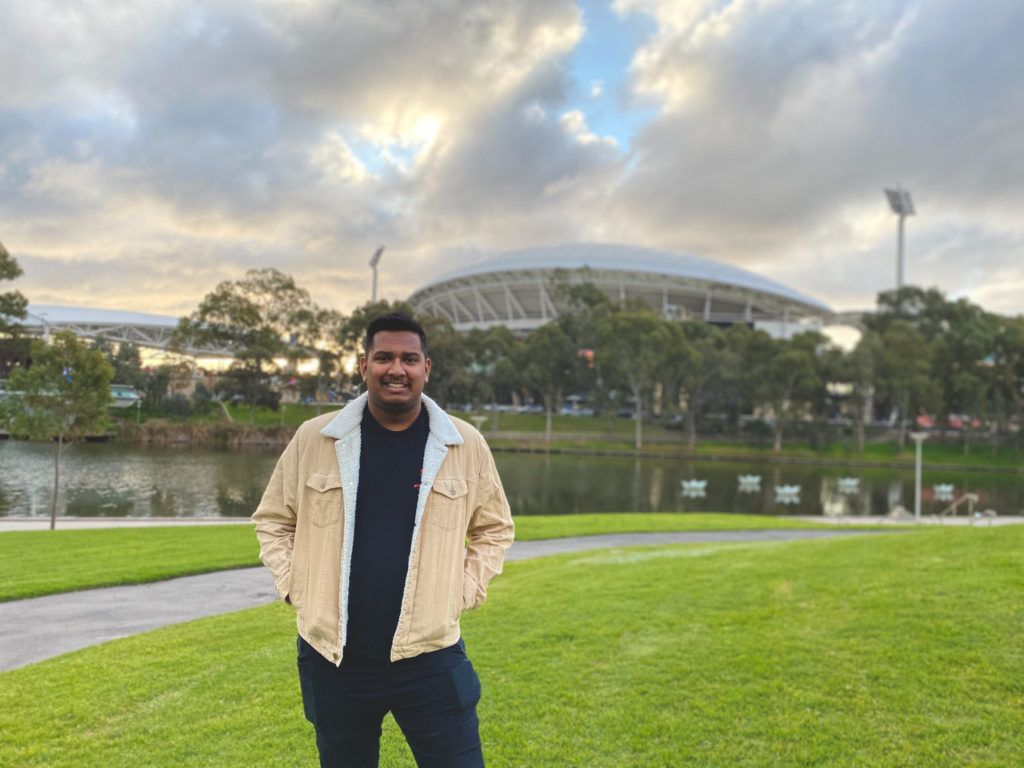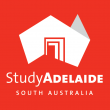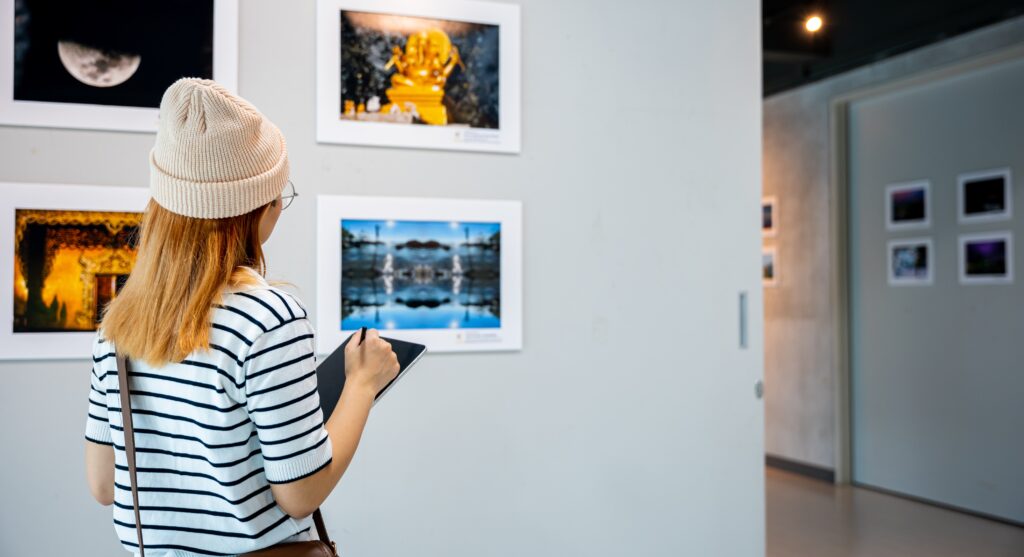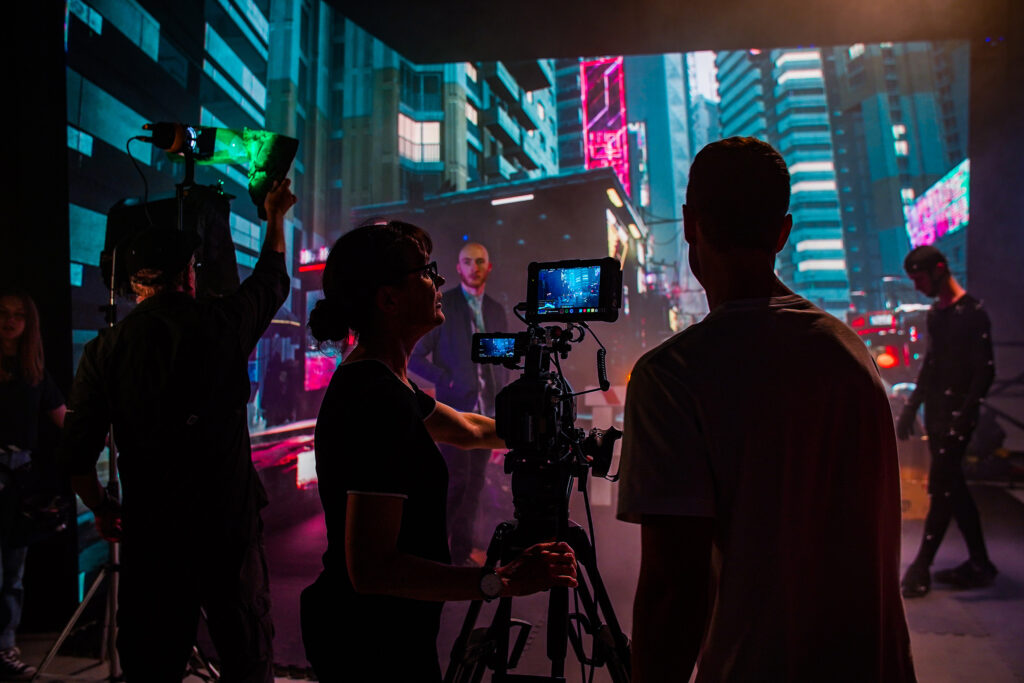Originally from Malaysia, Shanjaye Raj came to Adelaide a few years back to study, challenge himself, and leave his comfort zone. “I believed by leaving my comfort zone, I would learn more about myself and grow as an individual in a new and unknown place,” he says.
We sat down with him to find out what he loves about living in Adelaide, his experience undertaking a volunteer placement, and how he’s recently been dispatching tablets to the Moon with NASA.
Settling into a new life in Australia
Naturally, it took Shanjaye some time to get used to his new environment. He experienced feelings of culture shock and homesickness at the start, but over time, he made new friends by joining events at his adopted educational institution, The University of Adelaide, and through volunteer opportunities. “I realised Australia has a lot of amazing opportunities and some of the friendliest people in the world,” he says.
Shanjaye admires the diverse natural environment and beautiful landscapes of Australia, too. “I have seen some of the most beautiful beaches during my time here. I love spending my time exploring conservation parks and going on hikes and trail runs.”
Adelaide living
Shanjaye believes Adelaide is a city designed for students with universities, restaurants and shopping malls all conveniently located close to each other. It also helps that it’s home to the Australian Space Agency, which launched in 2018 to grow Australia’s space industry. “Besides that, people in Adelaide are really friendly and laid-back, unlike other big cities in Australia where it is really busy,” adds Shanjaye.
Currently in his final year studying a Bachelor of Engineering (Chemical & Pharmaceutical) at The University of Adelaide, Shanjaye has always been curious and interested in the world of science. “I feel like this degree suits my personality as I am someone who loves to challenge myself.”
One of the many aspects he enjoys about his degree is the amount of teamwork involved.
“Engineers work as a team to solve challenging problems and make a difference to the world. Good teamwork requires effective communication, and my degree has given me the platform to work on and develop my communication skills,” he says. His degree also involves a lot of problem-solving, which Shanjaye sees as an essential and transferable skill.
Making the most of opportunities
As part of his degree, Shanjaye had to complete practical experience over 12 weeks in order to graduate. Last summer, he contacted the lecturers and staff at his university to learn about available research assistant opportunities. “I got in contact with one of my lecturers, who allowed me to help him out with his research project as an assistant,” he says.
Shanjaye conducted experiments in the lab daily, recording and analysing the data obtained, and also spent time reading peer-reviewed articles and journals to better understand the research project. This experience helped Shanjaye review what others had done previously and match it with the results he obtained.
Shanjaye’s volunteer position eventually led to an incredibly interesting proposition: “I was invited to be a part of another exciting project, which involves sending medicine (moon tablets) to the International Space Station.”
Launching tablets to the Moon
Shanjaye shares that currently, the medicines we have on Earth do not last long in space as they usually disintegrate faster due to various factors in outer space. “Our project aims to produce medicine which would be stable and last in outer space conditions,” he says. This would allow for better treatment of unwell astronauts and make extended space missions possible.
“We call them ‘moon tablets’ because they are made of materials generally found on the Moon (but also on Earth). The active ingredient is ibuprofen and vitamin C with extra added moon materials to help keep them stable in space conditions,” Shanjaye explains.
Shanjaye worked on this fascinating project from March to June with his course mate, Shamaun Rahman, and under the supervision of their professor, Volker Hessel. “During this period, we were formulating the tablets at the university lab and made hundreds of tablets.” The tablets were then packaged and sent to Space Tango, one of the sponsors of the project helping deliver the payload to the International Space Station.
With the payload scheduled to launch in early October 2020, the tablets will come back to Earth sometime next year. “The goal is to analyse the tablets that have been exposed to space conditions over a year and report our findings,” Shanjaye says.
Throughout the project, Shanjaye learned how to formulate tablets from raw materials and understand how each element plays different roles in the quality and stability of the tablet. “This experience allowed me to put my theoretical knowledge from my degree into practice. I also got to develop teamwork and communication skills by working in a research team,” he says.
“[But] the main highlight of the project for me would be working on a project that involves some of the top space companies like Space Tango, Alpha Space and NASA. I get to network with different professionals involved in this project and learn more through them.”
When asked about his future, Shanjaye plans to keep his options open and try different things. “But if I had to choose, I would like to work as a researcher in a research-based environment such as universities or as part of other independent organisations.”
Shanjaye’s advice for fellow international students
Shanjaye recommends exploring the career hub at your university where often you will find fantastic volunteer placements advertised. He also says networking as a great way to meet people because he believes there are many opportunities out there that are not always advertised. “Get to know your lecturers and other staff at your university; sometimes they can land you an amazing opportunity.”






